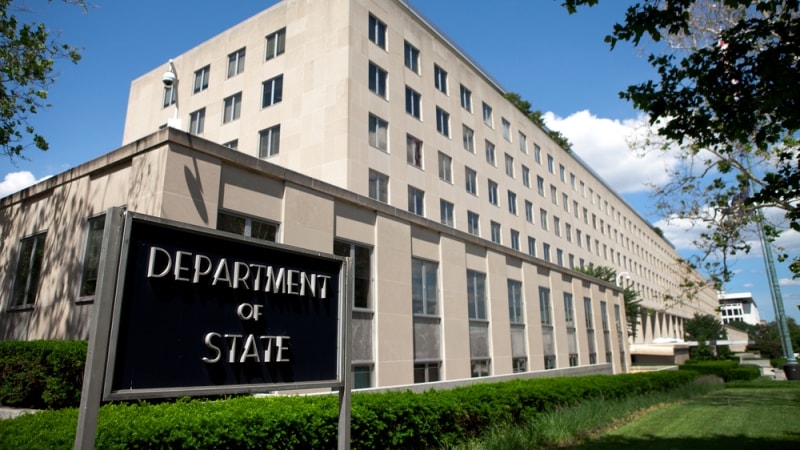
The head of the State Department’s Bureau of Cyberspace and Digital Policy said on April 26 that he has seen a “seismic shift” in public-private collaboration since Russia invaded Ukraine nearly 15 months ago.
“Most dark clouds have a silver lining,” Nathaniel Fick, the State Department’s inaugural ambassador for the cyber bureau, said during the third day of the RSA Conference in San Francisco. “The cloud of the Ukraine war is certainly dark, but if there is a silver lining it’s that – in my view – it accelerated public-private collaboration in a way that was extraordinary.”
“I spent 10 years as a CEO in the cybersecurity space, and when I would get hauled into a government meeting my eyes tended to glaze over because public-private partnership usually didn’t mean much,” Fick said. “In this case it really has.”
“Whether it’s migration of the Ukrainian government enterprise to the cloud, or the proliferation of satellite communications, or the incredible threat intelligence feedback loop that’s really helped in blunting Russia attacks inside Ukraine,” Fick said in listing major collaboration developments.
“This has been a seismic shift, I think, in how governments and industry collaborate, and there’s some lessons here that I know all of us are working to capture and hope we can apply in future cases,” he said.
During the discussion of Russia’s invasion of Ukraine, Fick urged that nations must begin to analyze and respond to cyberattacks at the same level as they do physical attacks. For example, Article 5 is enacted when a NATO ally is a victim of an armed attack. With the invocation of Article 5, allies can provide any form of assistance they deem necessary to respond to a situation.
Article 5 was not invoked during the Russian invasion of Ukraine, and because of this, many are wondering if cyber needs clarification in the terms of this NATO precedent.
“Our adversaries seek to do things to us using digital means that they would never do to us using kinetic means because of the clarity of the response policies,” Fick explained. “It is to our collective advantage to clarify and then enforce how we respond to what.”
The ambassador continued, adding, “We need to extend the full power of deterrence into the digital world using not only cyber means but every ounce of economic, and informational, and diplomatic, and – where necessary – military power.”
Fick said during the panel discussion that his year-old cyber bureau is focusing its diplomatic engagement on three emerging technologies: artificial intelligence, quantum, and biotechnology.
“We’re making bets initially to focus our diplomatic engagement on artificial intelligence, quantum science, and biotechnology as three emerging areas where the diplomatic landscape is still relatively underdeveloped,” Fick said.
“We have a huge incentive to make sure that rights-respecting democracies act early and act together to set the rules of the road and establish the guardrails by which these technologies will be developed and deployed and used in the world,” he explained.
One way the agency is currently spearheading this, Fick said, is by training and placing a cyber and digital officer in every U.S. embassy around the world by the end of 2024.
During a media roundtable earlier this month, Fick explained that the State Department will “have somebody in every embassy globally who has some basic training and understanding of these issues, so that translates out in the world.”
